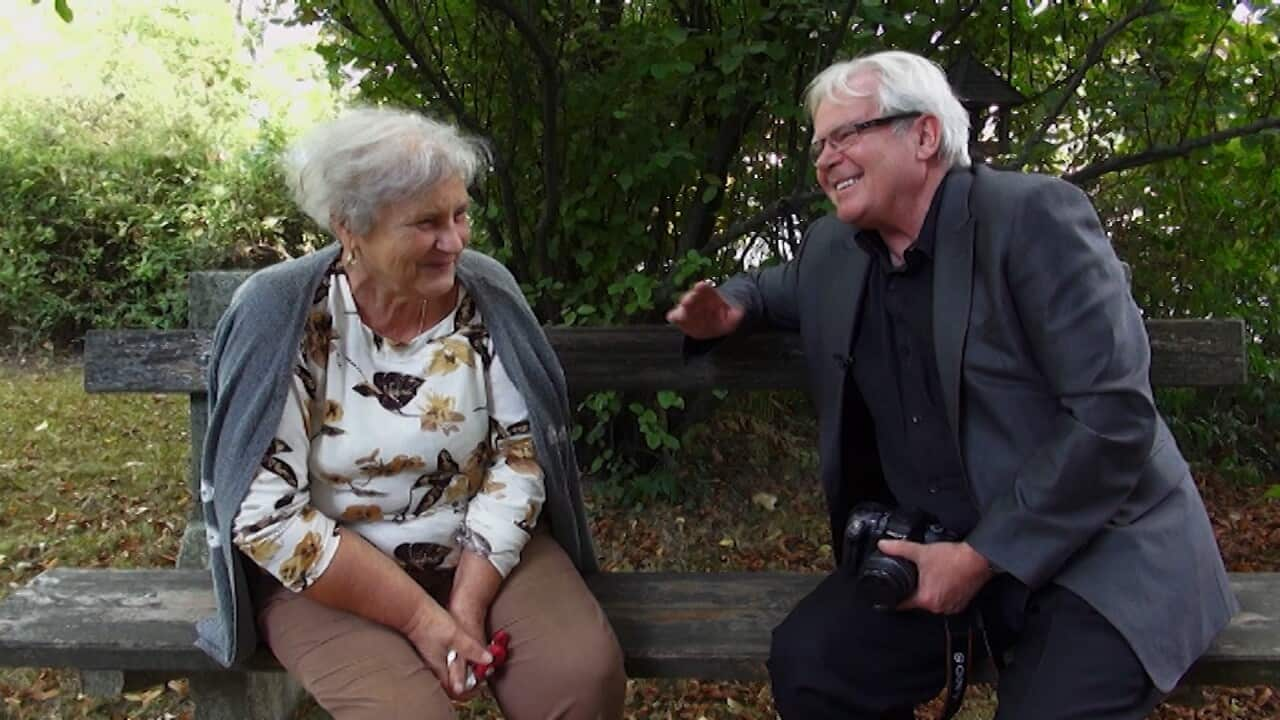NOTE: This was written in 2011, as a companion piece to a Dateline film, 'Les Murray's Mission'.
I feel compelled to narrate a unique adventure I experienced a few weeks ago that was as personally inspiring, heartening and emotional as any I have experienced, ever.
I thought of writing this while watching the Gold Coast v Jets game in which, at one time, there were three players on the field who came to Australia as refugees or asylum seekers: the Iraqi, Ali Abbas, Ambesager Yosief from Eritrea, and the Kosovar, Labinot Haliti.
As many will know, I too came here as a boy refugee and I too once wanted to be a professional footballer. The fact that I didn’t because I was too slow, too easily intimidated by muscle clad, ball breaking midfielders, too distracted by women and rock and roll, or just a crap player needs not be a matter of great relevance here.
But it is not irrelevant that there are other players in the A-League besides the above three who are refugees and many more whose parents were refugees. Indeed refugees, by their thousands, have made major contributions to football in this country (Frank Lowy among them), and mostly because of their love of the game.
This story concerns my personal search for a 'people smuggler’, the then young man who guided me across the Austro-Hungarian border in 1956, and to my freedom, at tremendous risk to himself. Before I embarked on this search I knew nothing of this man except that his first name was Julius (Gyula in Hungarian), vaguely where he lived and what he looked like 55 years ago.
The fact this needle in the haystack quest was filmed by award-winning SBS reporter Mark Davis came about as a result of a remark I made to him over a beer some months ago, expressing the view that people smugglers who assist asylum seekers get an unduly bad press in this country. I told him that MY people smuggler was essential to my quest to escape tyranny, that he was a hero to me and that I would do anything to find him and thank him.
I recounted to Mark how Julius walked me and the rest of my family across the border, in the dead of a winter’s night, with border guards hovering in observation towers, machine guns cocked, with him holding my hand and that of my little brother, defying the fact that his deed was tantamount to treason and, if caught, it carried the death penalty.
I never knew what happened to Julius after that, nor anything else about him.
Mark’s response was: 'Let’s do it. Let’s go and try to find him.’ So we did.
The journey, which traces my family’s trek from our home on the outskirts of Budapest to the point at the border where, finally, freedom was ours, is a passage and a true detective story of twists and turns and fascinating landmarks along the way.
There is, for instance, the case of my discovery of and reunion with a man who was then just a four year old toddler. He, Andor Keresztes is his name, was a member of another family which conspired with mine on planning the daring dash, including recruiting the many who helped along the way (all, effectively, 'people smugglers’).
The difference was that while my family escaped, his was arrested close to the border. My last memory of the Keresztes family was the sight of them being escorted by two gun-toting Soviet soldiers. I heard or knew nothing of them since.
December 1956 was a rough time for freedom loving Hungarians. On October 23 of that year a revolution broke out as the people rose up against the Stalinist tyranny that governed them. The uprising lasted just 18 days. On November 10 it was over with the hope crushed under the might of Russian tanks.
In the aftermath came the brutal crackdown against those who had actively taken part in the dissidence. The desperate, in fear of their lives like my father, ran for the borders with their families. They did this with nothing except the clothes on their backs, leaving homes, families, friends, loved ones behind.
Some 200,000 Hungarians managed their escape in a short two-month window following the crush of November 10. Imagine if those numbers confronted some Australians today, in an era when the thought of a few hundred desperates in leaky boats heading for our shores seems to spell invasion followed quickly by the end of the world.
Of course if you are among those who once actually made this journey of desperation you see things through a different prism. And you also understand that those who helped you along this perilous passage, the so called people smugglers, nice people or not, are essential to your quest for freedom.
After we reached the border on that chilly December night, Julius stopped, kissed us all and turned back to walk back to his village, disappearing into the darkness. We were now on our own.
Not long later, as we walked on, we confronted two Austrian villagers a few parts under the weather, staggering home from the local keller. After my father explained to them what we were about, one of them broke into raucous laughter, slapped my father on the back and said: 'Well, welcome. You are free.’
And we have been free ever since.
And in the decades that have passed, since I was that young boy, I had scarcely lost thought of Julius, this mysterious young man without whose help I would not have found my freedom.
It is why, even if it took 55 years, I just had to find him.
Dateline is an award-winning Australian, international documentary series airing for over 40 years. Each week Dateline scours the globe to bring you a world of daring stories. Read more about Dateline
Have a story or comment? Contact Us


